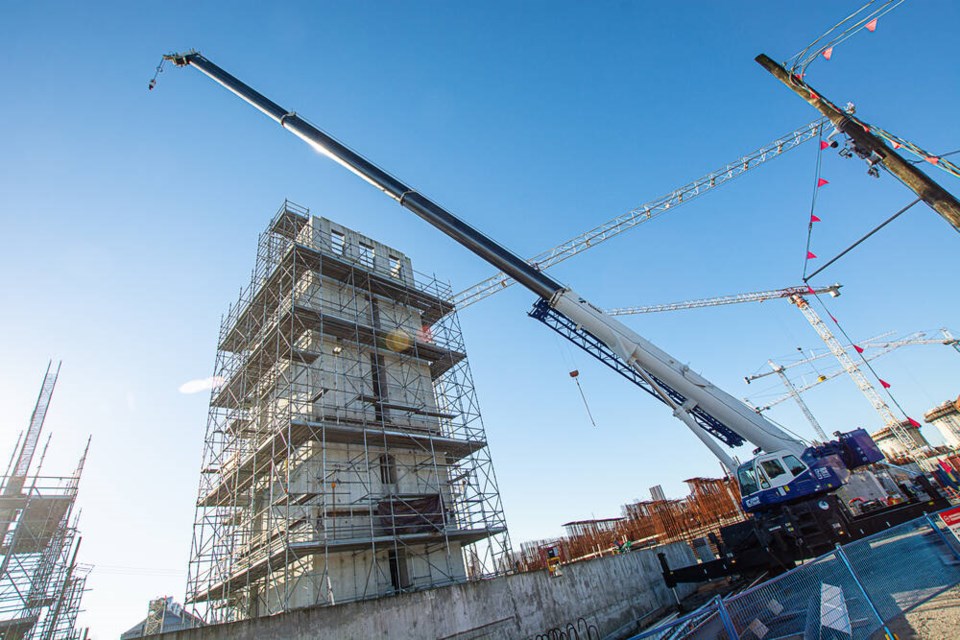District of North Vancouver Coun. Catherine Pope – one of the most vocal critics of Metro Vancouver following the North Shore Wastewater Treatment Plant boondoggle – is less than impressed with the board’s pledge to make reforms.
The regional authority hired Deloitte Canada to conduct a governance review in the wake of growing discontent from members of the public who are seeing sharp increases to their property taxes and utility fees.
“Challenges with the North Shore Wastewater Treatment Plant program and the subsequent funding impacts have created an environment of extreme tension within the board and with municipalities,” stated the Deloitte report, which was tabled last week.
The consultants produced a number of recommendations, including reforming Metro Vancouver's governance structure into a “hybrid board” whereby appointed members oversee Metro Vancouver’s utility operations, which account for about 80 per cent of all work.
A hybrid board may address the constant turnover of directors every four years, which has caused problems for staff when communicating long-term objectives, such as the need to renew utility infrastructure, Deloitte noted.
Deloitte also examined board models that would reduce the number of directors from 41 to 23, meaning one director per jurisdiction. This could solve some of the political impasse perceived at the board due to its large size, said the report.
The consulting and auditing firm also suggested a “corporatization” model, eliminating elected officials entirely. It did not suggest a model whereby directors are directly elected.
The goal, said Deloitte, is to “introduce a balance of professional experience, and enhance decision-making and risk management.”
Another issue identified as problematic is how directors become increasingly conflicted in their roles, between serving their own municipality and serving the region as a whole. For example, a costly regional project may not serve a municipality directly.
Following the board’s meeting on Friday, Metro Vancouver issued a release in which board chair Mike Hurley said the Metro board would form a new governance committee to begin implementing some of the report’s 49 recommendations, which include reviewing the board size and structure, streamlining standing committees, and strengthening Metro Vancouver’s internal audit function. He also called on the provincial government to install a liaison on the committee, as any board structure changes will require new provincial legislation.
The board also voted unanimously on Friday to end double payment for meetings that go over four hours, eliminated remuneration for travel pertaining to Metro Vancouver business as well as converting a monthly stipend for committee chairs in favour of a double meeting fee.
Directors are currently paid $547 per meeting.
At the meeting, City of North Vancouver Mayor Linda Buchanan suggested the governance of Metro Vancouver would not be under such scrutiny were it not for the cost overrun on the North Shore Wastewater Treatment Plant, and Shayne Gregg, the report’s author, did not disagree.
Gregg told the board his report was not intended to recommend “transformative” changes to the board.
Hurley said the votes on the remuneration adjustments were merely preliminary or “quick” fixes based on the clearest recommendations from Gregg.
Metro Vancouver critic reacts
On Monday, Pope said the Deloitte report was a good start and that she has full faith in the people behind it. But she added it does not get at the underlying issue that’s festering – what went wrong with the North Shore Wastewater Treatment Plant.
“Reducing the size of the board and board meeting stipends is fine … but it’s pretty small potatoes compared to the reason why this report was asked for in the first place,” she said.
In the interests of accountability, the report also stressed that “it is paramount to balance confidentiality and the need for transparency,” but Pope said she did not see the board take any actions towards that.
“I believe that is a result response largely due to the North Shore Wastewater Treatment Plant cost overruns and all of the criticism that’s come out since then,” she said. “But it was not part of the Metro board’s release, and it doesn’t seem to be on their radar.”
Pope said she agrees with the general direction the governance review recommends, and said it could result in better decisions in the future.
“What we’ve seen time and time again is political leaders are put in these positions where they have a limited amount of knowledge in the field, and they’re making enormous, billion-dollar decisions that have long-term impacts on the community,” she said. “I’m disappointed that I’m not seeing more response to this report from Metro, but it doesn’t surprise me.”


